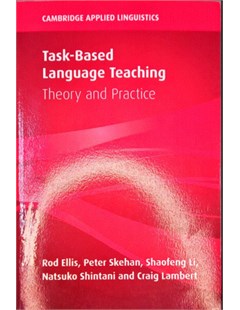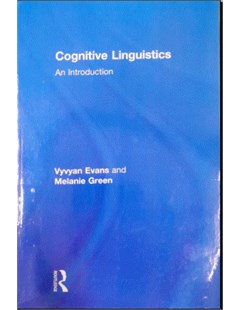Task-Based Language Teaching: Theory and Practice
Provides readers with a single up-to-date source of information about task-based language teaching. Task-based language teaching is now mandated by many educational authorities throughout the world and this book serves as a core source of information for researchers, teachers and students.
2016
Task-based language teaching is an approach which differs from traditional approaches by emphasising the importance of engaging learners' natural abilities for acquiring language incidentally through the performance of tasks that draw learners' attention to form.
Drawing on the multiple perspectives and expertise of five leading authorities in the field, this book provides a comprehensive and balanced account of task-based language teaching (TBLT).
Split into five sections, the book provides an historical account of the development of TBLT and introduces the key issues facing the area.
A number of different theoretical perspectives that have informed TBLT are presented, followed by a discussion on key pedagogic aspects - syllabus design, methodology of a task-based lesson, and task-based assessment.
The final sections consider the research that has investigated the effectiveness of TBLT, addresses critiques and suggest directions for future research.
Task-based language teaching is now mandated by many educational authorities throughout the world and this book serves as a core source of information for researchers, teachers and students.
Contains multiple perspectives and specialist knowledge which provides an authoritative account of different aspects of TBLT
Written in an accessible style, the book is a core resource for a wide range of readers including teachers, researchers and students
Provides readers with a single up-to-date source of information about task-based language teaching.
Contents:
PART 1: Introduction:
The pedagogic backgraound to task-based language teaching;
PART 2 : Theoretical perspectives:
Cognitive-interactionist perspectives
Psycholinguistic perspectives
Sociocultural perspectives
Psychological perspectives
Educational perspectives
PART 3: Pedagogical perspectives:
Task-based syllabus design
Methodology of task-based language teaching
Task-based testing and assessment
PART 4: Investigating task-based programmes:
Coparative method studies
Evaluating task-based language teaching
PART 5: Moving forward:
Responding to the critics of task-based language teaching
Questions
Challenges and the future.
Rod Ellis, Task-Based Language Teaching: Theory and Practice, Cambridge Applied Linguistics,
 |  |  |
| Exploring Intercultural Communication | Cognitive Linguistics: An Introdution |
Thứ Ba, 17:36 27/12/2022
Copyright © 2018 Hanoi University of Industry.